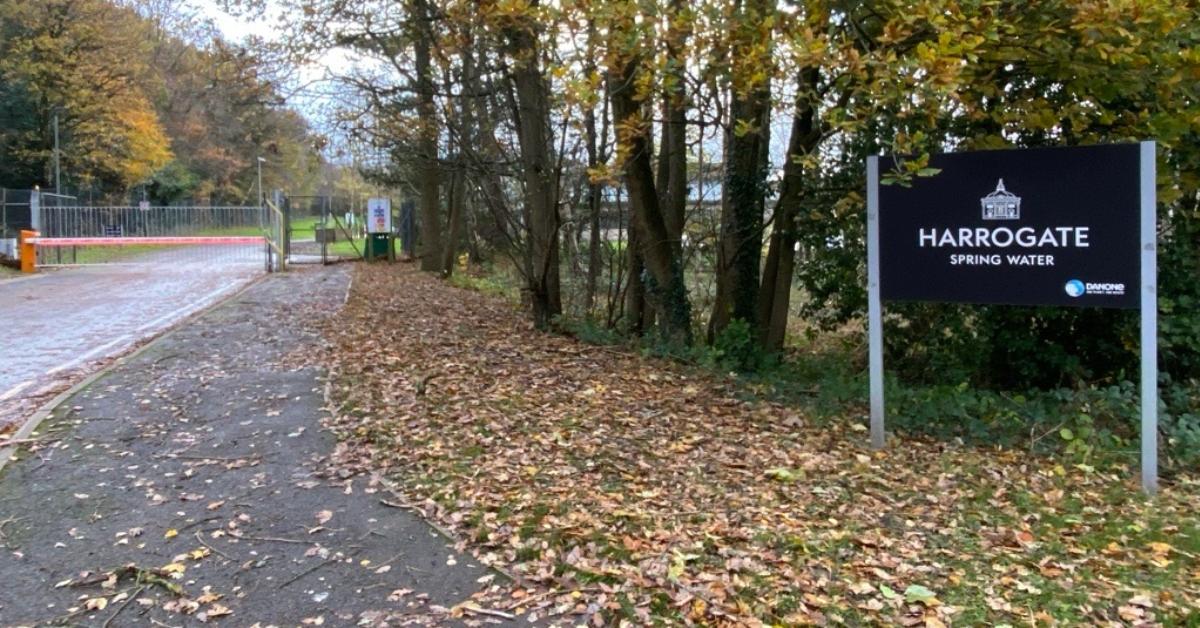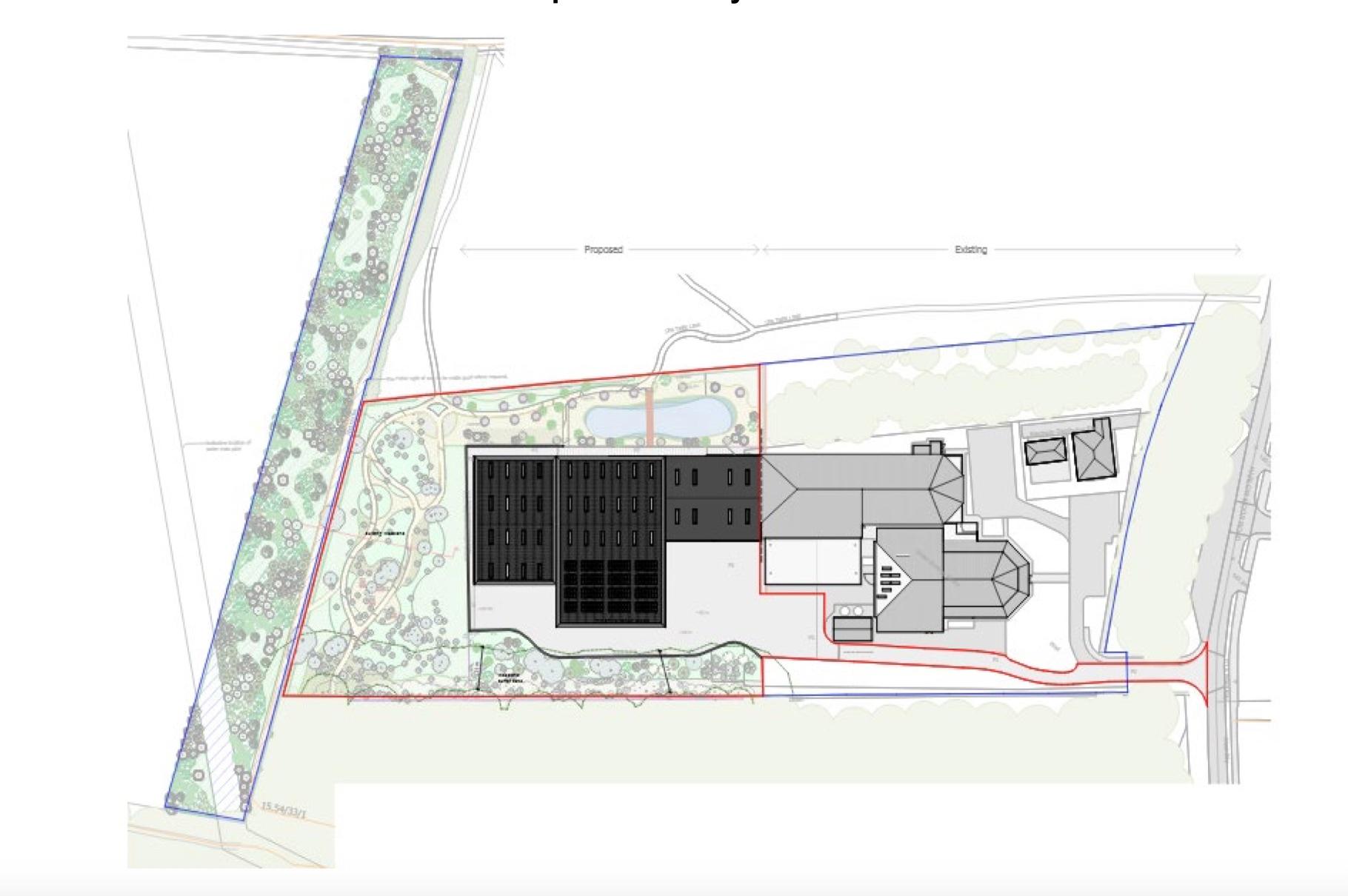Subscribe to trusted local news
In a time of both misinformation and too much information, quality journalism is more crucial than ever. By subscribing, you can help us get the story right.
- Subscription costs less than £1 a week with an annual plan.
Already a subscriber? Log in here.
21
Oct 2025
5 reasons why the council recommends approving Harrogate Spring Water expansion

Four years after it was last before councillors, Harrogate Spring Water’s bottling plant expansion is set to be adjudicated on once again.
The controversial proposal will be determined North Yorkshire Council’s Harrogate and Knaresborough area planning committee on Tuesday (October 28).
Gerard Walsh, a council planning case officer, has recommended councillors approve it in a lengthy report, which was published yesterday.
The Stray Ferret has read through the 41-page report to get a sense of how the council arrived at its recommendation. Here is what we learned.
1. Expansion "considered acceptable"
The council believes Harrogate Spring Water’s plan to expand its bottling plant is “considered acceptable” and therefore should be approved by councillors.
As previously reported, the expansion would mean the loss of around 500 trees in Rotary Wood, an area of community woodland planted around 20 years ago and owned by the council.
However, in his report, Mr Walsh points to a previous outline planning approval in 2017 which says the the proposal could be "adequately mitigated such that the economic benefits of the proposal outweighed the harm”.
Mr Walsh adds that the reserved matters application, which is being considered next week, relates to appearance, landscaping, layout and scale — which “have been assessed by officers and are considered to be acceptable”.
2. “Mitigation for loss of plantation woodland can be achieved”
Many of the objections against the bottling plant expansion focus on the loss of trees in Rotary Wood.
Campaigners and councillors have claimed there would be a loss of biodiversity as a result of the plan.

The plans have met determined resistance from campaigners such as Sarah Gibbs.
However, in its report, the council’s ecology officer states that Harrogate Spring Water’s “package of biodiversity compensation” would be adequate to “demonstrate that ‘no net loss of biodiversity’ can be achieved”.
The report adds:
North Yorkshire Council's ecologist is satisfied that the full mitigation for the extent of loss of plantation woodland can be achieved, based on the information submitted in support of the discharge of condition application (HGT20/01549/DISCON). However, the ecologist and applicant are looking at an opportunity to provide a wet woodland adjacent to the site.
They are reviewing the necessary details but are confident that a wet woodland can be provided as part of the proposal.
3. Other matters raised under objection
In his report, Mr Walsh addresses other matters raised under objection including highways, infrastructure and impact on climate change.
However, he states that many of the matters raised by objectors are not covered under a reserved matters application.
Mr Walsh said they were considered by councillors at the outline application stage and are covered by conditions attached to that planning consent.
Harrogate Spring Water received outline permission for the scheme in May 2017.
The report states:
Matters such as sustainability, infrastructure issues, increased trade effluent, residential amenity, highway safety, impact on climate change, increased plastic bottle production, the amount of water being extracted, and other matters have also been raised in representations but, again, these are not reserved matters and are not therefore for consideration under this application.
4. Legal and procedural concerns
According to the report, the council has no concerns that the handling of the application may lead to “legal or procedural concerns”.
Harrogate Spring Water submitted its reserved matters application to the former Harrogate Borough Council in 2020.

The site layout for the expansion.
Since then, the proposal has been to one planning committee in January 2021.
On that occasion, councillors rejected Harrogate Spring Water's expansion plans after a debate that made national headlines and saw ex-Countryfile presenter Julia Bradbury join campaigners in opposing the move.
Revised plans were submitted a year ago.
In the report published on Monday (October 20), Mr Walsh states that the delay is “largely due to the applicant reviewing the proposal in light of consultation responses and representations”.
It adds:
Whilst the length of time it has taken to get the application to planning committee is not ideal, officers do not consider that this or any other aspects of the handling of the application raise any legal or procedural concerns.
5. Land ownership “not a material consideration”
Should planning approval be granted for Harrogate Spring Water’s plan, the issue over the council-owned land could be a complicated issue.
The wider Pinewoods area is designated an asset of community value, which means it is recognised for its importance in furthering the local community interests or social wellbeing.
The council report says:
This means that, were the council minded to dispose of this land there would be a six-week moratorium period where the council could not dispose of it and this would be publicised in the press.
During this moratorium period, local community interest groups may express intent to bid for the land. If a group expresses interest, then a full moratorium period of six months would apply.
This gives local community groups the opportunity to put an offer together and place a bid. The asset cannot be sold during this time unless it is to a local community interest group.
However, despite the issues over the land ownership, Mr Walsh adds in the report that the matter is not a material planning consideration.
He says:
Reference has also been made to a conflict of interest in reference to the fact that the land is the ownership of North Yorkshire Council. Land ownership is not a material planning consideration and is given no weight in the assessment of the proposal by the local planning authority.
2